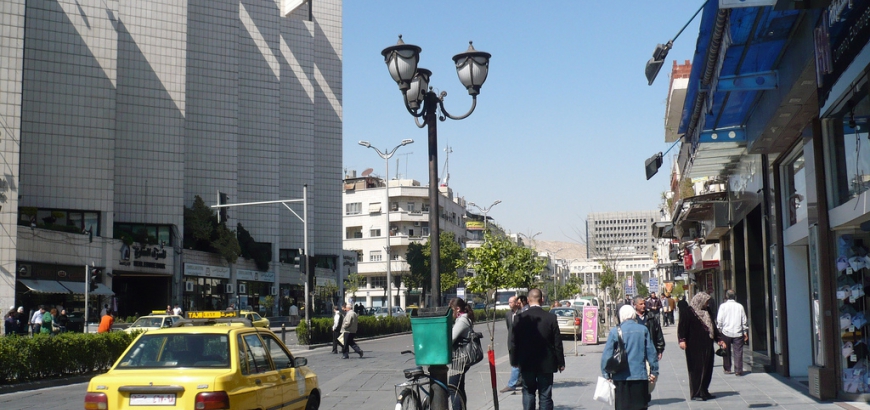Syrian women have tasted the bitterness of forced displacement and have lost the breadwinners — husbands and sons — whether through uprooting, kidnapping, arrest or death, which has pushed them to practice professions that had ordinarily been limited to men. This situation has forced them to radically change their lives to become heads of families inside and outside the walls of their homes.
Amal (not her real name), who is 42 years old, was forced to work as a cigarette vendor after the death of her husband, a job she says does not earn more than a day’s needs for her and her 10-year-old son, Hassan.
Amal, who lives in the Barzeh district in Damascus, says: “I tried to look for work but I didn’t find anywhere to work, which pushed me to sell the gold we had saved and spend from that money. After that, I decided that I would move into this work to provide for myself and my son.”
Another scene has become usual in Damascus, which is women working as callers in coffee shops, such as Reem al-Sallam (a false name), who told Alsouria Net the story of her work in one of the coffee shops of Sarouja area in Damascus, saying: “We are a family of four girls and two boys in addition to my father and mother. My brothers have been forced to travel to avoid military service and my father is no longer able to provide for us, which pushed me to work in the coffee shop, especially given that I have not finished my studies.”
Among the stranger scenes in Damascus is that of Samira Helwani, Umm Arab, who works as a taxi driver. Driving was not unfamiliar to her as she was previously working as a microbus driver on the Jaraman-Bab Toumeh route. Helwani said that she had a sick brother and the rest of her family were women, and so she decided to take up responsibility and work to provide for them, even if in a field that was once exclusive to men.
Fewer men
The Assad regime has created a demographic gap in Syria, either through military operations against civilians, widespread arrest campaigns or forced conscription.
Many young men have been forced to flee Syria as well and the rate of women in Syrian society since February is now 65 percent, according to the top government Shariah judge, Mahmoud Marawi.
Marawi sparked a large wave of anger on social media when he commented in the pro-regime Tishreen newspaper, calling on Syrians openly to have multiple wives.
New professions
Over the last seven years new trades have appeared, like selling bread at traffic lights, which has become a refuge for many women, girls and even small children, who stand by traffic lights in order for passing cars to buy bread from them. At the Ibn al-Ameed bakery in Rukn al-Deen, women can often be found carrying bread and heading to car windows to sell their items.
The situation of Syrian refugee women is no better, as women in the neighboring countries suffer from a bitter life and lack of income, as indicated by a regional response plan report from the United Nations, which said that Syrian women comprise 48.5 percent of refugees in neighboring countries, adding that these women also work for long hours in exchange for low wages.
In the same context, a report from the Madad Center, loyal to the Assad regime, said that many Syrian women had lost their jobs as a result of the war, especially in the private sector, noting that the poverty rate in Syria had reached 67 percent.
Statistics in the Tishreen newspaper published in March indicated the monthly need of Syrian families was 290,000 Syrian pounds, which has put Syrian women before a major challenge to keep their families alive.
This article was translated and edited by The Syrian Observer. Responsibility for the information and views set out in this article lies entirely with the author.


